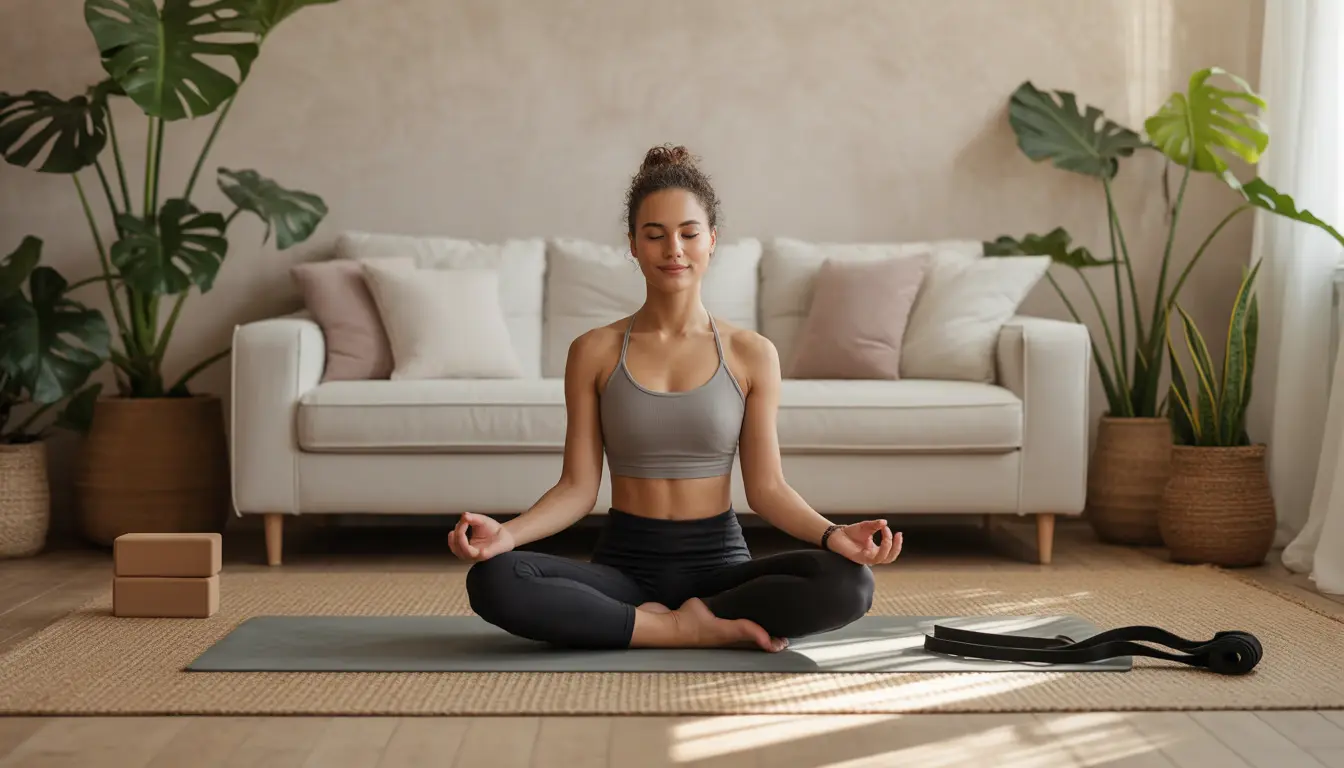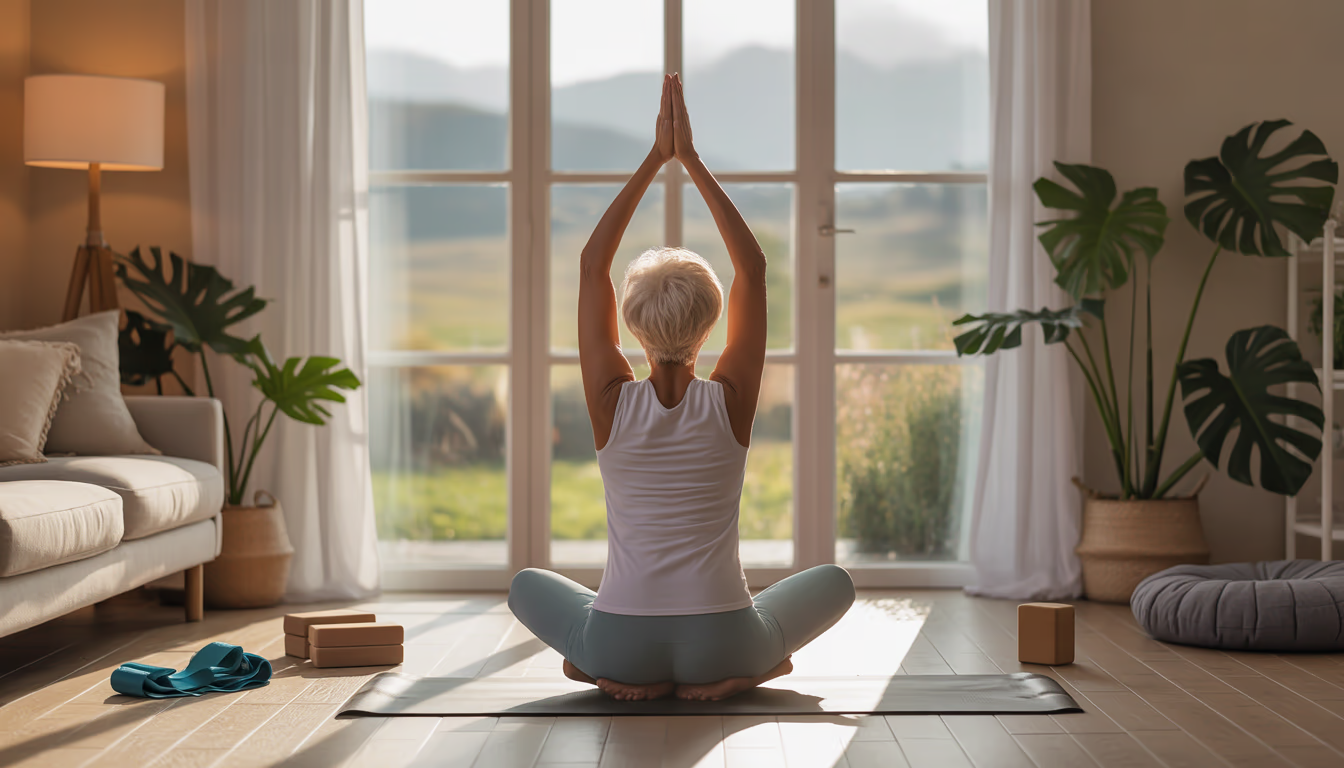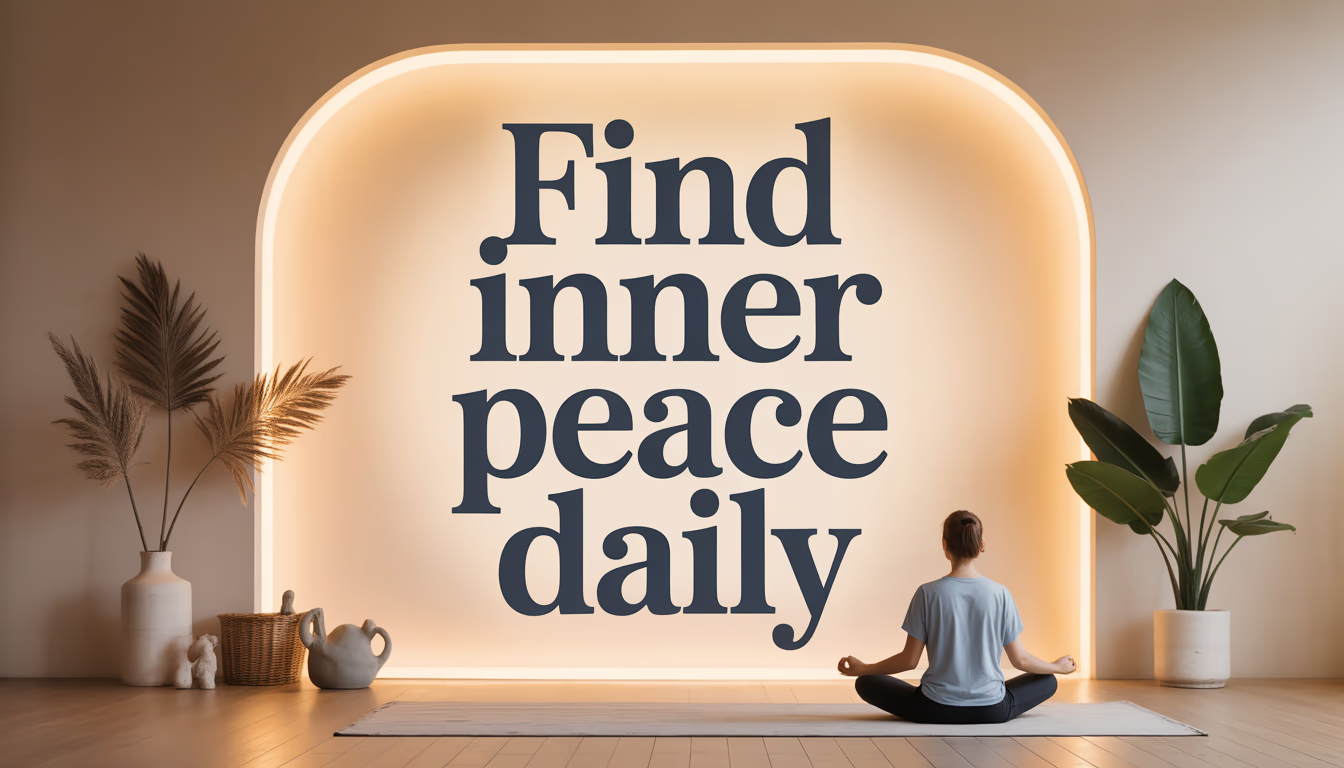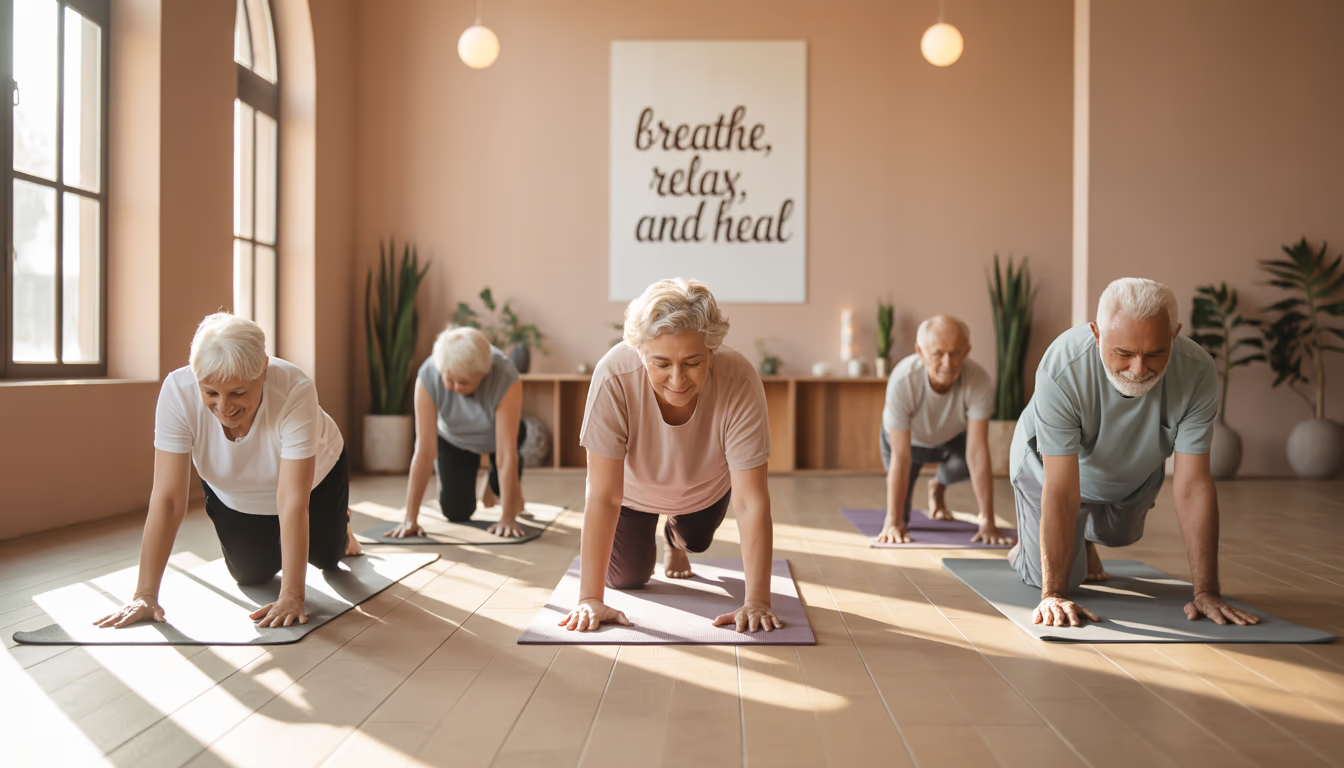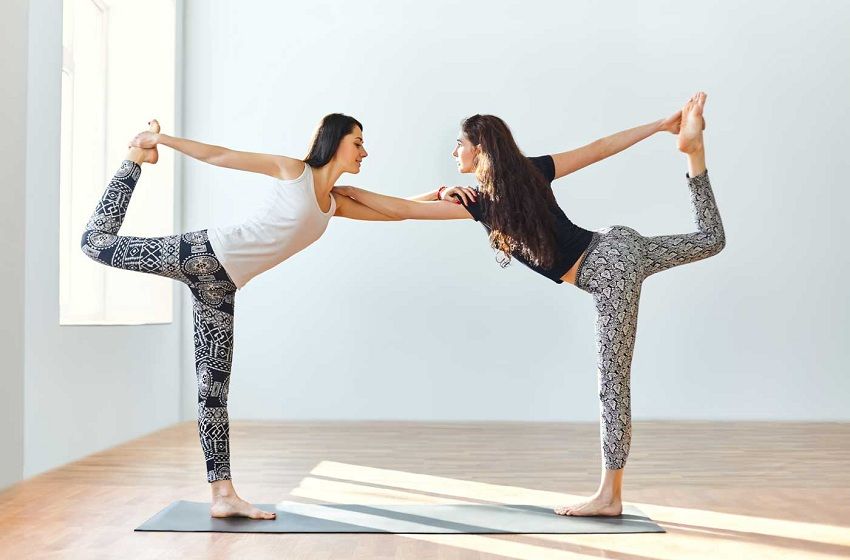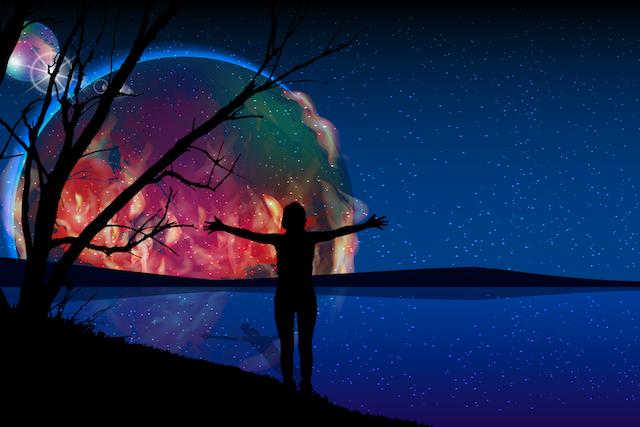One hundred and sixteen prominent yoga teachers and three Buddhist leaders signed on to an initiative in May that will encourage members of their communities to vote in the upcoming 2020 presidential election and increase voter turnout. The group, dubbed “Yogins United” (a yogin is a gender neutral term for a yogi), includes luminaries and changemakers like Reginald Hubbard, Octavia Raheem, Sat Bir Singh Khalsa, Stephen Cope, Rajni Tripathi, James Bae, Rod Stryker, Seane Corn, and Shiva Rea.
“In light of recent events pertaining to the murder of George Floyd, I have seen a tremendous hunger in the yoga community on how they can be more engaged with matters of racial justice and civil rights,” says Reginald Hubbard, a yoga teacher and senior political strategist and congressional liaison for MoveOn.org, a public policy advocacy group.
Hubbard teaches yoga and meditation to political operatives, congressional staff, and members of Congress including “The Squad” (Representatives Alexandria Ocasio-Cortez, Ilhan Omar, Ayanna Pressley, Rashida Tlaib), and says that wellness should serve as a foundation rather than an afterthought. For Hubbard, his pledge to Yogins United is part of a larger effort to reform the status quo through community engagement. “My hope is to use my teaching platform to share from my activist experience about why voting and civic engagement matters, and to help organize the community through online live events like the Wellness of We,” he says.
See also A Sequence for Building Resilience in This Political Climate
Every Vote Counts
The November election threatens to exclude an alarming number of eligible voters. Voter suppression has been a tactic of the Republican party, according to an audio recording that was leaked by a top Trump adviser and obtained by the Associated Press in late-2019. And the current administration is rallying against voting by mail.
Yogins United, started by David Lipsius, a yoga teacher and former president of Yoga Alliance, is a call to action for the yoga, mindfulness, Ayurveda, and spiritual communities to help get out the vote—in person, or by mail if COVID-19 prevents millions of Americans from making it to the polls this fall. “Spiritual teachers have united with nonprofit leaders and CEOs, and community builders have joined forces with activists and healers to send a message—the time for division is over,” Lipsius says. “A new era of partnership and teamwork must be fostered to achieve the highest goals of yoga—peace, freedom and liberation for all.”
See also 8 Steps Yogis Can Take to Turn Political Anxiety Into Mindful Activism
Collectively, Lipsius says, the 80 million Americans who practice yoga form a potential voting block that has the power to change systems, leadership, and even society itself. "What would happen if 50 million yoga practitioners inspired just one other person to vote?” Lipsius asks. “Could we begin reversing climate change? Could we eliminate childhood food insecurity? Could we ensure basic human rights for every person in this country?" Lipsius acknowledges that not all yoga practitioners share the same political beliefs and values, but says that as yogis, it is our collective responsibility to address these issues rather than remain impartial or neutral.
Yogins United began as an outreach effort in the Buddhist community started by renowned spiritual teachers Tara Brach and Jack Kornfield. When Brach asked Lipsius if he thought yoga teachers would be interested in mobilizing, he began contacting yoga leaders and received an overwhelming positive response. “It’s exciting that we can be natural partners in initiatives like this,” says Brach, a psychologist, author, and Buddhist meditation teacher. “Together [we] have the potential for significant and deeply beneficial impact.”
See also Tara Brach on Facing Fears For a True Spiritual Awakening
The Buddhist and Yogin groups—more than 200 strong together—will use digital platforms and outreach to provide resources and reminders for how to improve the percentage of Americans who vote, particularly in the yoga, meditation, and spiritual communities. “One of the central teachings of yoga is the truth of our interdependence,” Lipsius says. “Now is the time to come together.”
9 Yoga and Meditation Teachers On Why They’ve Pledged to Help Get Out the Vote
While some yoga practitioners have argued that politics don’t belong in a yoga setting, there’s never been a more compelling time than now to rethink the intention behind the practice. As Gandhi said, “Those who think politics and spirituality are separate, don’t understand spirituality.” For me, yoga is not about temporarily escaping or hiding from reality, rather yoga strengthens our resolve and gives us the tools to navigate it all from a place of integrity and truth. Yoga practitioners can be peaceful warriors who stand up for what they believe in and possess the courage to speak out against injustices.
I reached out to a few of the yoga and meditation leaders who’ve pledged to Yogins United to learn more about why they believe we, as a collective community, need to help get out the vote this November.
MAYA BREUER, E-RYT
Co-Founder of the Black Yoga Teachers Alliance, Founder and Co-Director of the Yoga Retreat for Women of Color
We are in dire need for this country to alter what has historically been the mistreatment of the black community. The murder of George Floyd and numerous other Black Americans; police brutality and violence, racism, inequality, mass incarceration, harsh jail sentencing; the lack of socio-economic parity. I am not sure how things can be changed even with new leadership. I remain hopeful that if Joe Biden is elected President of the United States, it will signal the intention for a better America and we will be poised to begin to address these issues that have been endemic to the black community for many years.
Rhode Island has a long history of disenfranchised voting rights. Until recently, felons were not allowed to vote even after completing their sentences and probation. Voting rights were restored to RI felons in 2006, but the long history of not being able to vote continues to impact voter turnout. Today, RI requires a photo ID for all voters, and this serves to suppress voting, particularly among the unhoused. A provisional ballot is offered in these cases, based on matching signatures.
In 2005, the following information was published by the ACLU of Rhode Island: “Rhode Island disfranchises a greater percentage of its African American residents than Mississippi, Georgia, Texas, and 34 other states. With long probation sentences increasingly the norm in Rhode Island, some felons are prevented from voting for decades after they have reentered the community. The Family Life Center estimates that of the 15,500 disenfranchised felons in RI, 86 percent are not incarcerated and would be re-enfranchised by the proposed amendment. According to the Center, since 1987, the number of Rhode Island citizens barred from voting has increased nearly 70 percent.”
The practices of yoga, mindfulness, and meditation have been a boon to the health and well-being of many. In this time of the COVID-19 pandemic and social distancing, many are teaching and participating in holistic programs to heal body, mind, and spirit. In communities of color, people are coming together to teach these practices in our communities. The outcomes of these practices, combined with allopathic medicine, impact the biopsychosocial areas and improve mental and physical health. This summer, the Healing Retreat for People of Color will offer a virtual experience in yoga, meditation, mindfulness, dance, drumming, Native American flute, arts, Ayurveda, and nutrition. This virtual event is free for all. We have targeted our outreach to people of color who would benefit from these ancient practices.
REGINALD HUBBARD, E-RYT
Senior Political Strategist and Congressional Liaison for MoveOn.org
I have been teaching members of Congress, congressional staff, and political operatives basic asana and meditation to impact their work, with a focus on wellness as a foundation rather than an afterthought. My hope is to use my teaching platform to share from my activist experience about why voting and civic engagement matters, and to help organize the community through online live events. In light of recent events pertaining to the murder of George Floyd, I have seen a tremendous hunger among the yoga community on how they can be more engaged in general and with respect to matters of racial justice and civil rights.
I haven't seen voter suppression in terms of intimidation, but we are currently fighting efforts by the Trump Administration to restrict vote by mail and to bankrupt the post office in an attempt to make his re-election chances improve. Or when the Wisconsin Republican party forced polls to open during the height of the pandemic a few months ago and willfully under-resourced the election in an attempt to influence a state supreme court race. Or in 2018, when the Georgia secretary of state invalidated significant numbers of African American voters that would have likely gone to Republican challenger Democrat Stacey Abrams.
If anything positive can be said of the current administration it's that it has awakened the grassroots energy and collective civic consciousness to speak truth to power and give voice to the type of society we want and deserve. Based on my perspective and the work that I have done in the past several years in the heart of the grassroots resistance (at MoveOn and on the Bernie 2016 campaign), and on what we are seeing now in response to the passing of Mr. Floyd, I am hopeful that the people will be able to push a new administration in the direction toward evolution of a more humane, loving, and just society that’s less focused on racial, class, or gender discrimination.
I am hopeful that a new administration will have a mandate for tremendous reform, by We the People who, should they not deliver, will hold them accountable. We’re seeing the beginnings of a formation of a new coalition of multi-racial and intergenerational citizens protesting in the streets to have their voices heard. I’m seeing a similar self-organizing taking place in the yoga community and wellness space. With my students and my teaching practice, I try to speak candidly from my experience and be accessible for questions on whatever topics come up (lately they have ranged from yogic philosophy to diversity and inclusion in the yoga community, to how one may get more engaged politically). I think real and lasting change is rooted in not just personal healing and transformation, but also interpersonal connection and community.
TARA BRACH, Ph.D
Psychologist, Author, and Buddhist Meditation Teacher
While in the early days there was compartmentalization between spiritual practice and social activism, in recent years this is shifting. Increasingly, members of the mindfulness community are responding actively to climate change, racism, social injustice, human genocide, and cruelty to non-human animals. Spiritual practices are not a way to escape life, they are a pathway of inhabiting our lives and bringing our awareness, wisdom, and love into this world (including politics!) As Gandhi said, ‘Those who think politics and spirituality are separate, don’t understand spirituality.’
While the yoga world may tend to be progressive, not everyone votes, not everyone in our social networks vote, and not everyone is attuned to the important option of voting by mail. My hope is that liberally minded yogis will be inspired to volunteer time or donate money to mobilize potential voters beyond their networks.
I think that getting out the vote will lead to electing more progressive and compassionate leadership, and in my own communications I’ve been very clear that this feels urgent and necessary for the healing of our world. The Yogins and Buddhists have a shared dedication to ethical living and the greater good of our society. Everyone has the right to vote and we want to make sure they get to exercise that right.
DAVID LIPSIUS
Former President & CEO of Yoga Alliance, Former CEO of Kripalu Center for Yoga & Health
Yoga leaders always have a choice—we can continue to prioritize the greed of the worldwide yoga industrial complex that is based on competition, exclusion, and marginalization, or we can dedicate ourselves to truly serving society by bringing people together for the common good. To get involved. To vote. To demand leadership that is both wise and compassionate. The next great experiment in yoga is not related to some savvy brand or charismatic teacher—it is related to higher ideals, to doing good in the world, to service, and to working together with an unshakable ethical core.
Although yoga in the U.S. has a long, long way to go before we can claim any degree of universal inclusivity, it is true that the growing yoga demographics likely reflect a much broader array of political beliefs than in decades past. Yogins United calls forth all yogins to facilitate a fair and democratic election no matter who you select on the ballot. Our desire is that all eligible voters are allowed to vote, and that they vote when it is time to vote. And while I only speak for myself, I will vote for a new administration; for leaders who believe in the verified science of climate change; and for leadership that puts more emphasis on kindness and the humanity of every living being.
SEANE CORN
Author, Activist, and Founder of Off the Mat, Into the World
Yoga teaches us that there is no separation and it’s the work of the yogi to recognize the fractures that exist within ourselves and this world, heal those divides through accountability and conscious action, and do everything in our capacity to come back into wholeness. Therefore, anything that disrupts this interdependency, including systemic policy and leadership that supports oppression and inequality, must be eradicated and transformed. If we don’t actively work to end these divides, then we are complicit in these fractures and in the suffering they create. We become the problem. So, without a doubt, yoga is political, and voting is one of the ways that we can contribute to changing this world.
ELENA BROWER
Best-Selling Author of Practice You
For years I've been torn about whether politics belongs in yoga, but it's no longer just about politics, is it? It's about humanity, changing history, it's about privilege. It's about dismantling a narrative of subjugating, enslaving, and murdering human beings. What's my role? Every day I can remind myself of my unearned privilege. Every day I can have hard conversations in which I own how I'm complicit. My vote is like my yoga— I'm using both to nourish and heal humanity.
JIVANA HEYMAN, C-IAYT, E-RYT
Director of Accessible Yoga
I was an AIDS activist before I was a yoga teacher, and I’ve always been dedicated to equity and empowerment. I think protests are an effective political tool, but another simple way to make a major impact is through voting. If more people voted, we would have a government that is more representative of the people. I worry that yoga practitioners have lost sight of the fact that social justice is at the heart of our practice. The spiritual bypassing of our contemporary practice has confused yogis into thinking that “we are all one” is the goal of our practice. Instead, our practice is really about serving others, reducing harm, and fighting for truth and peace in the world. Yogis need to vote!
TIFFANY CRUIKSHANK, L.Ac, MAOM, E-RYT
Author and Founder of Yoga Medicine
It’s more important than ever that we ALL vote and are ALL heard. It’s easy to feel like your voice is just one of so many but without each single vote there are none and it’s up to us to make a difference. Yoga Medicine supports the movement rallying more people to vote and will definitely be encouraging our community to show up to vote so that we can elect the candidate who most accurately reflects our values and initiatives as a nation.

